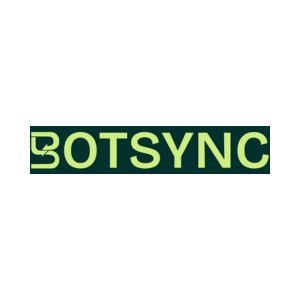Startups & Business News

A Chinese humanoid robot recently demonstrated its ability to cook a steak by being remotely operated from 1,800 kilometers away using virtual reality (VR)—a spectacle that pushes the boundaries of both robotics and telepresence control. Developed by Shenzhen-based Dobot Robotics, the Atom model stands out not only for its dexterity and precision but also as a signpost for the future of remote labor and assistance.
How It Worked
In a captivating four-minute video, a Dobot engineer in Guangdong donned a VR headset and controlled Atom, stationed far away in Shandong province. The robot precisely mirrored the operator’s hand gestures in real time, carrying out a range of delicate culinary tasks:
Dabbing the steak with a paper towel
Pouring oil
Flipping the steak
Sprinkling salt with five-fingered hands, replicating human-like dexterity.
Atom’s control system boasts an accuracy of 0.05 millimeters, allowing for fine motor control that’s essential for tasks like cooking, surgery, or other situations where a soft touch is crucial. Currently, only Atom’s upper body is fully controllable via VR, but its developers suggest broader autonomy—including a human-like walking gait—could be coming next.
Why This Matters
This feat isn’t just a flashy tech demo—it signals potential breakthroughs in remote work, hazardous environment operations, and even medical procedures. The combo of high-accuracy robotics and VR teleoperation opens doors for human expertise to be delivered anywhere, anytime, not just in the kitchen but in:
Surgical theaters
Nuclear plant inspections
Space exploration (NASA has been developing similar technologies for controlling robots at a distance).
Robot Features and Specs
Launched: March 2025
Degrees of Freedom: 28, enhancing flexibility and lifelike movements
Hands: Five-fingered, capable of subtle, coordinated actions
Tasks Demoed: Steak cooking, breakfast preparation (placing toast, lettuce, fruit, pouring milk), walking.
The Atom robot is priced at around $27,500, marking it as one of the more accessible advanced robotics platforms for enterprises looking to explore teleoperation. Mass production and global delivery began recently, with Japan among the first international recipients.

What Sets This Apart
Unlike previous industrial robots or clunky remote-controlled machines, Dobot’s Atom blends AI-driven precision with intuitive, human-guided control—in other words, instead of programming each movement or relying on automation alone, the robot responds to live human decisions made thousands of miles away.
Implications and the Road Ahead
Remote-controlled humanoid robots like Atom could revolutionize labor, making high-skill expertise and assistance instantly available across geographies and industries:
Healthcare: Surgeons could operate in remote or isolated areas without leaving their home base
Disaster Response: Humans could perform hazardous tasks—such as bomb disposal or firefighting—from a safe distance
Luxury and Home Services: Remote personal chefs or cleaners could become a reality wherever high-speed networks allow.
As VR hardware continues to improve and AI-driven robots get even smarter, the line between physical and virtual labor will keep blurring. Dobot’s Atom marks an important step on that journey: a machine that brings the hands—and skills—of a human directly to where they’re needed most, no matter the distance.

futureTEKnow
Editorial Team
futureTEKnow is a leading source for Technology, Startups, and Business News, spotlighting the most innovative companies and breakthrough trends in emerging tech sectors like Artificial Intelligence (AI), Robotics, and the Space Industry.
Discover the companies and startups shaping tomorrow — explore the future of technology today.
Most Popular
Trending Companies
Latest Articles

AI-Driven Logistics & Distribution Transformation: From Insight to Scalable Impact
AI is redefining logistics transformation—from network design to real-time execution. This article explores how data-driven insight, intelligent automation, and scalable
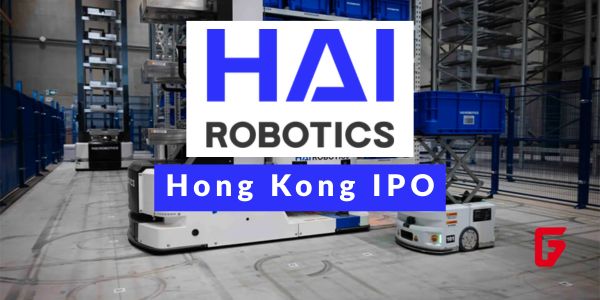
Hai Robotics Hong Kong IPO: From Startup Funding to Warehouse Robot Leader
Shenzhen’s Hai Robotics, pioneer in ACR warehouse robots, files for HK IPO after raising over $500M in funding rounds led

AI-Enabled Process Engineering & Continuous Improvement: Designing Systems That Learn
Explore how AI transforms process engineering and continuous improvement into self-learning systems. This article explains how organizations can design operations
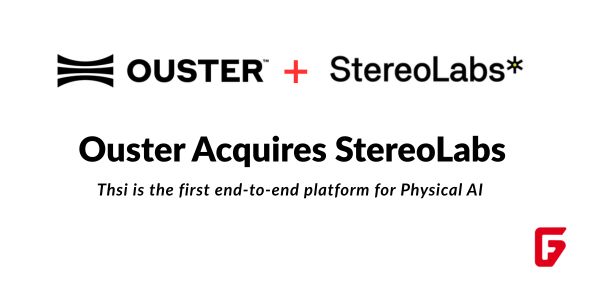
Ouster Acquires StereoLabs: Unified Physical AI Sensing Platform Launches
Ouster’s $35M StereoLabs acquisition fuses lidar and ZED cameras into end-to-end Physical AI sensing. Founders Cecile Schmollgruber and team drive

Bretton AI Lands $75M Series B Funding to Scale AI Agents for Financial Crime and AML/KYC Compliance
Bretton AI’s $75M Series B modernizes AML KYC compliance via AI agents, slashing staffing costs for banks and fintechs like

Axiom Space Raises $350M to Build Commercial Space Station and NASA Spacesuits
Axiom Space has locked in a fresh $350M raise to push its commercial space station and NASA lunar spacesuits toward
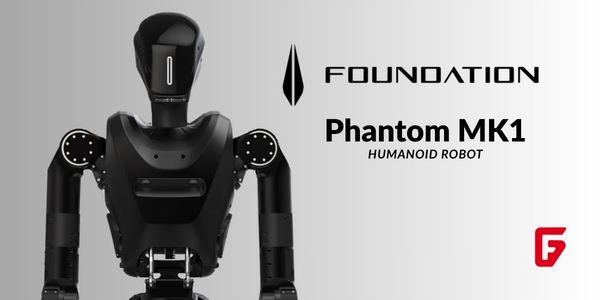
Foundation Humanoid Robot: Phantom MK1 Overview, Military Plans, and Factory Deployments
Foundation’s Phantom MK1 humanoid robot hits factories and eyes military use. Check specs, pilots, and bold 50k goal by 2027.

Morpheus Space Raises $15M for GO-2 Electric Propulsion Mass Production
Morpheus Space secures $15M funding for GO-2 electric propulsion mass production. Learn how this boosts satellite mobility with efficient thrusters.
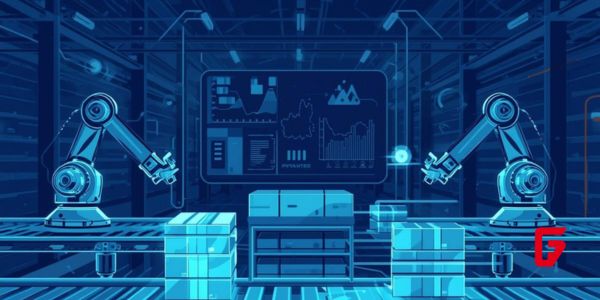
Designing Warehouse Automation Through Operating Strategy
Discover how leading companies design warehouse automation through integrated operating strategies. Learn how AI, robotics, and adaptability drive efficiency and
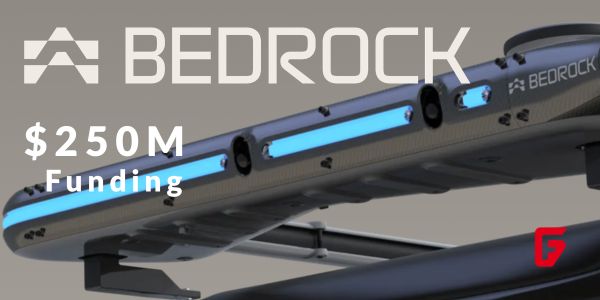
Bedrock Robotics Raises $270M Series B: Autonomy for Construction Boom
Exciting news: Bedrock Robotics just scored $270M in Series B to power up autonomous machines on job sites. Led by
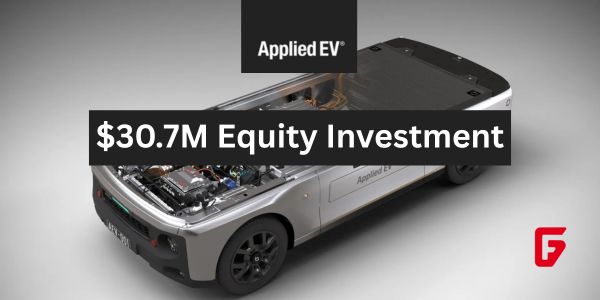
Applied EV secures $30.7M to scale Blanc Robot autonomous delivery EVs for logistics, mining and last‑mile freight
Discover how Applied EV’s $30.7M NRF investment boosts Blanc Robot EVs for tough jobs in mining and logistics. Founders reveal

Stoke Space Secures $860M in Extended Series D Funding for Reusable Nova Rockets
Stoke Space extended its Series D funding to $860 million, fueling Nova’s full-reuse rocket production at Cape Canaveral. Backed by
futureTEKnow is focused on identifying and promoting creators, disruptors and innovators, and serving as a vital resource for those interested in the latest advancements in technology.
© 2026 All Rights Reserved.
![Discover the top 10 AI companies in Germany [1st Edition], revolutionizing industries with cutting-edge technology and innovations.](https://futureteknow.com/wp-content/uploads/2025/02/Top-10-AI-Companies-in-Germany-Leading-the-Tech-Revolution-futureTEKnow.jpg)



